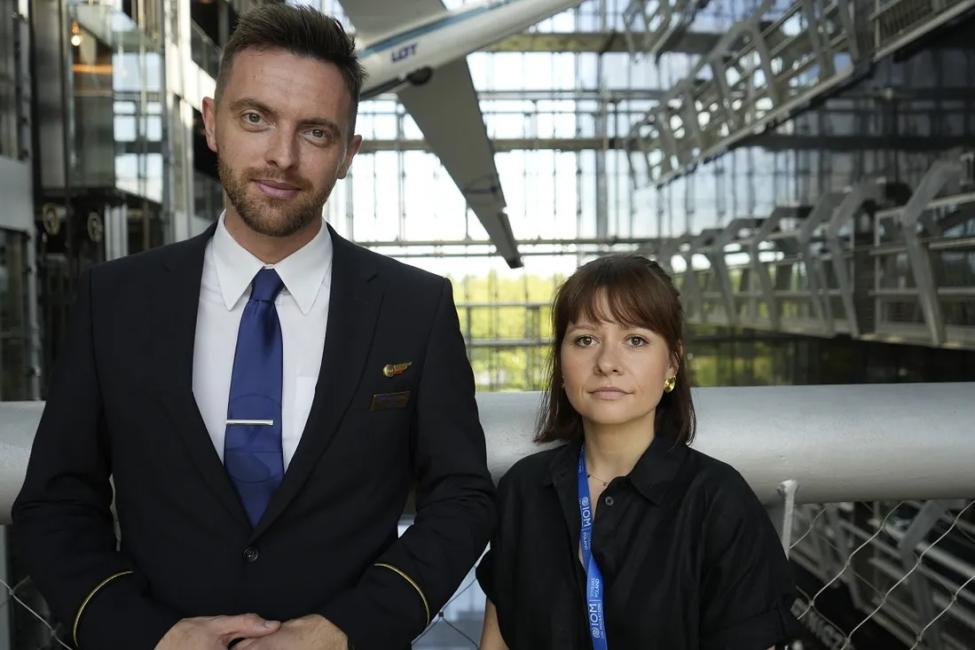-
Who We Are
WHO WE AREThe International Organization for Migration (IOM) is part of the United Nations System as the leading inter-governmental organization promoting since 1951 humane and orderly migration for the benefit of all, with 175 member states and a presence in over 100 countries. IOM has had a presence in Hungary since 1992.
About
About
IOM Global
IOM Global
-
Our Work
Our WorkAs the leading inter-governmental organization promoting humane and orderly migration, IOM plays a key role to support the achievement of the 2030 Agenda through different areas of intervention that connect both humanitarian assistance and sustainable development. Across Hungary, IOM provides a comprehensive response to the humanitarian needs of migrants, returnees and host communities.
What we do
What we do
Cross-cutting (Global)
Cross-cutting (Global)
- Data and Resources
- Take Action
- 2030 Agenda
Warsaw — When two women boarded a plane to Tianjin, China, with two small children and two identical cradles, Robert Niedzwiedzinski, LOT Polish Airlines Senior Cabin Crew Member, grew suspicious.
“The baby care items looked as though they had come straight from a store,” Robert recalls. “There was a man flying in business class who was seated close by and talked to them throughout the entire flight.”
Robert noticed the children did not bear any physical resemblance to the women and it soon became apparent that the women could not be the children’s biological mothers.
He immediately alerted his colleagues of his suspicions, following the procedures that he had learned during a counter-trafficking training session organized by the International Organization for Migration (IOM).
“I spoke with the flight purser, requesting that we call the Border Guards because I suspected that the children could be victims of human trafficking. I also contacted the captain, adding that I had just completed a training on the identification of human trafficking victims,” Robert says.
According to the 2021 “Trafficking Report in Persons: Poland” from the U.S. Department of State, labour trafficking in particular has increased in Poland. As global crises such as climate change, the impact of the COVID-19 pandemic and conflicts persist, vulnerabilities to trafficking for both domestic and foreign victims have also increased.
Traffickers use various tactics, including physical and psychological abuse, threats, blackmail, fraud or coercion. They usually identify individuals in particularly vulnerable situations such as women and children and often target those facing economic struggles, social marginalization, and limited access to healthcare, decent work, and education opportunities.
The 2021 Global Estimates indicate there are 50 million people in situations of modern slavery on any given day. Since many are trafficked by air, the aviation industry plays a crucial role in identifying and intercepting cases of trafficking in persons.
To tackle the issue, IOM has recently partnered with LOT Polish Airlines to conduct trainings for cabin crew members on identifying and supporting victims of trafficking.
“The sessions have equipped the cabin crew with essential tools and techniques to identify potential victims and report suspected cases in a way which is safe for those affected, passengers and crew alike,” explains Iga Marques, training facilitator of IOM Poland’s protection team.
Cabin crew members are in a unique position to interact with victims of trafficking. The flight allows them enough time to observe suspicious behaviours and identify potential victims of trafficking, and alert in-flight staff and authorities on the ground before they reach their final destination.
total of 24 training sessions OVER 400 cabin crew members have taken place so far, with more sessions planned.
IOM has been organizing and conducting counter-trafficking training sessions in Poland since 2016 for local and national authorities and relevant businesses to enhance their capacity to detect and prevent trafficking cases. Among the participants are Border Guard officials, including those working at Warsaw Airport, to increase the effectiveness of protection mechanisms for victims transported by air.
Robert is convinced that it was this training that helped him identify the two potential child victims of human trafficking aboard his flight. “The training taught me how to identify unusual behaviours, facial expressions and gestures,” he explains.
Before taking off, the Border Guards came on board to check the documents of the passengers in question. Although he could not confirm whether the children had been victims of human trafficking, Robert was satisfied with his response in that situation.
“It gave me the feeling that I had fulfilled my duty,” he adds.

